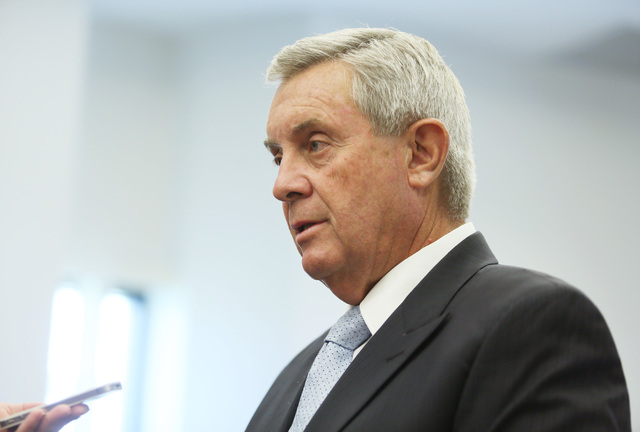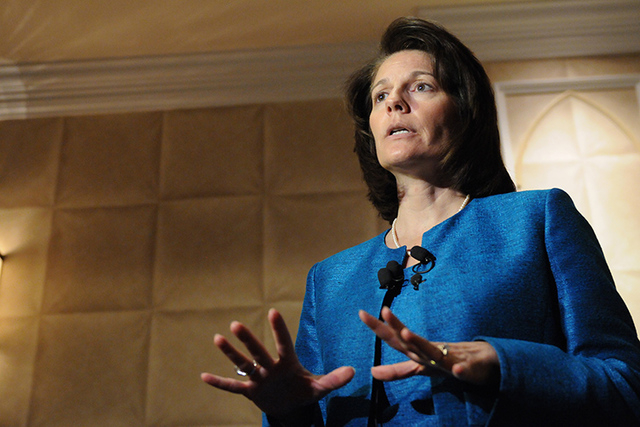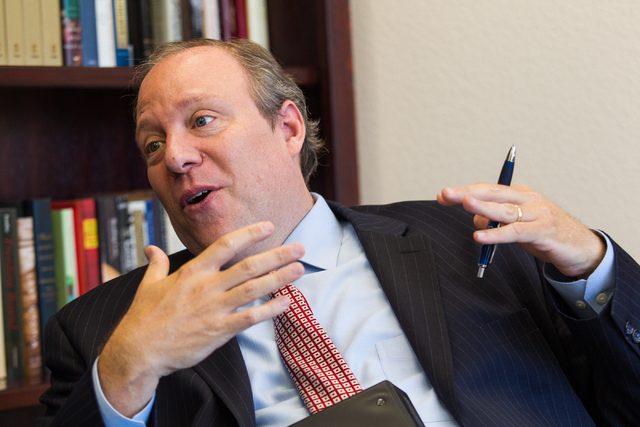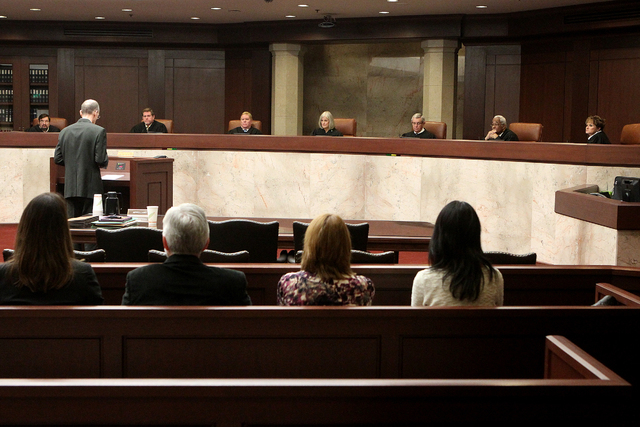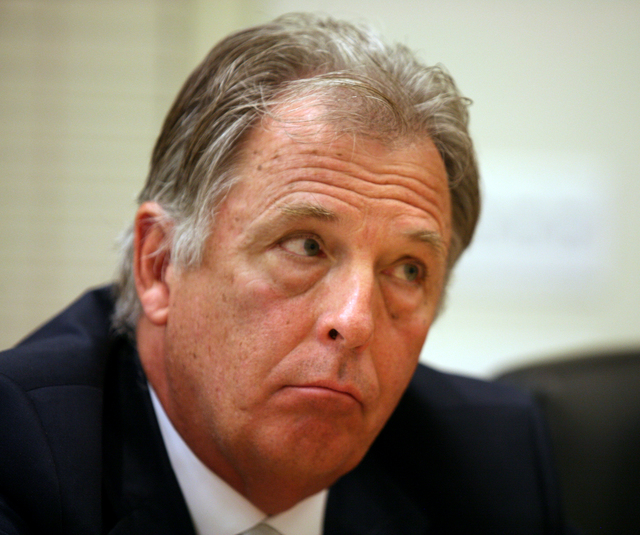Appeals court needed to speed up justice, panel says
Nevada needs an appeals court before its legal system can graduate from the “horse and buggy” era, a panel of experts said Monday.
Supreme Court Justice James Hardesty said the Silver State is one of 10 states without an intermediate appeals court, and the high court’s seven judges are overloaded with cases.
Each judge handled an average of 333 cases in 2013, more than the 100 recommended by the American Bar Association, Hardesty said.
“We are a big girl state,” he said. “This has to change.”
Hardesty was joined by former Supreme Court Justice Bill Maupin, Nevada Attorney General Catherine Cortez Masto and UNLV Boyd Law School Dean Daniel Hamilton at the Las Vegas Review-Journal’s “Hashtags &Headlines” luncheon at Texas Station.
All four advocated for the creation of an appeals court, which would add three justices to handle about one-third of the roughly 2,200 cases appealed to the Supreme Court each year.
Voters will decide in the Nov. 4 general election whether to approve the Court of Appeals, which will appear as Question No. 1 on the ballot. The Nevada Legislature unanimously approved it in 2011 and 2013.
Many of those cases shouldn’t require a ruling from the high court, panelists said, such as inmate writs of habeas corpus and driver’s license revocation petitions.
Masto said it typically takes two years after filing an appeal for her office to get an answer from the Supreme Court.
“That’s justice delayed, right?” she said. “If somebody wants an answer quickly, they’re going to have wait for a period of time to get that answer.”
An appeals court would cost about $1.5 million a year to operate, but it would not require building new courthouses.
Nevada voters rejected the proposal in 2010, with 53 percent voting not to change the state’s constitution, which requires the Supreme Court handle all appeals.
Doesn’t no mean no? asked Review-Journal columnist and panel host Steve Sebelius.
“No,” Hardesty said.
Hardesty said he was also against creating an appeals court in 2004.
But the proposal a decade earlier wasn’t clear about the cost or how an appeals court would impact the justice system, he said.
Today’s plan does, he said.
The proposal under consideration is a “push down” model, which means the Supreme Court would take all appeals, delegating the basic cases to the lower court.
This would free up the Supreme Court justices to publish more opinions — and set more precedents — in a state with very few written opinions. It’s hard for lawyers to advise their clients without clear precedent, Hamilton said.
“A legal system craves clarity and clear precedent, and (then) the Supreme Court really can be a true court of last resort. … That is crucial for the state to have settled, clear law,” he said.
Hardesty said adding an appeals court is better than adding more justices to the Supreme Court. A larger entity is often less effective, he said.
If voters approve the appellate court, the Supreme Court would have the power to tweak the court without going back to the Legislature, Hardesty said.
As Nevada grows, its legal system must also evolve, he said. An appeals court would make the state’s legal system more efficient now, but also 25 years from now.
“We’re trying to look into the future here,” Hardesty said.
Contact reporter Mike Blasky at mblasky@reviewjournal.com. Follow @blasky on Twitter.



